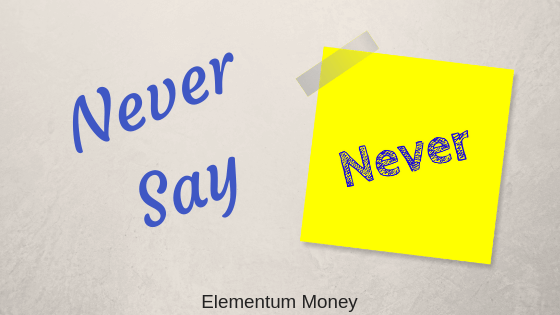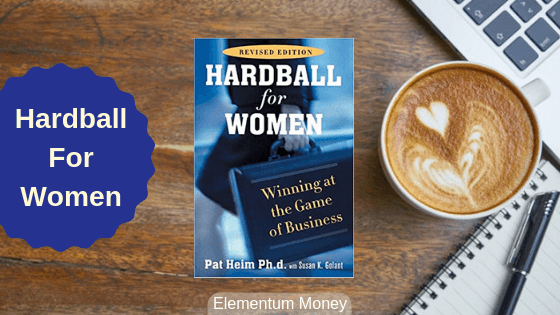In my eleven years of corporate life, I have often felt conflicted and at times like a fish out of water. In corporate everyone is out to prove their talent and know-how and never to look like a fool. On the other hand, for me every process comes with an opportunity to learn as a bundled deal.
I still remember a conversation with a colleague at my last marketing job. We were discussing something about my most feared and hated period, namely appraisals. In my brutally honest manner, I said all of that doesn’t matter till the time I am getting to do new things and continue learning in my job. The colleague laughed in my face and told me that I am lying to him and to myself. For, in a corporate job atleast, all that matters is making yourself look good to chase the next promotion and getting more moolah.
Well, he wasn’t off the mark with telling me the exact direction in which most of the corporate herd moves. But, what the conflict of opinion really showed was the distance between the two kinds of mindsets.
Fixed Mindset vs Growth Mindset
Think of two statues – one made of ceramic and one made of plasticine. The ceramic one is unchanging and unlikely to yield to any further input. It has reached it’s destiny and if broken there isn’t much scope for repair either.
On the other hand, when it is plasticine, different kinds of effects and forces could change what it looks like completely. There could be things added to it leading to changes. Even without any additions, it could be moulded in a way to show a vast difference.
To me, that’s the difference between a fixed and a growth mindset. A fixed mindset is one where someone believes that they are who they are and there is no evolution or anything new to be learnt. On the other hand, a growth mindset is one where a person keeps striving for improvement.
The concept was first popularised by a Professor of Psychology at Stanford, Carol Dweck. To read it from the horse’s keyboard, this is how she defines the mindset in a Harvard Business Review article:
Individuals who believe their talents can be developed (through hard work, good strategies, and input from others) have a growth mindset. They tend to achieve more than those with a more fixed mindset (those who believe their talents are innate gifts). This is because they worry less about looking smart and they put more energy into learning.
– Carol Dweck, What having a “Growth Mindset” actually means
In some ways, the idea of a growth mindset is closely connected to that of neuroplasticity. There is research to back this term which implies that the brain (or specifically neurons) has an ability to change and adapt as a result of experience.
Personally, I truly identify with the idea of a growth mindset along with the desire of being a lifelong learner. But, to the vast majority who would rather think of end of school being an end to learning, there needs to be enough reason to pursue this path.
Benefits of having a Growth Mindset
If the internet and powers of Google search are to be believed, then reams of pages can be written in lofty acclaim of the allied benefits from having a growth mindset. But, in this case I have tried to cut down to a rational number and talk about the things which I have personally experienced in connection with trying to adopt it.
1. Helps with self evolution in this dynamic world
One key saying is that the only permanent thing in life is change. In today’s world of sweeping changes at breakneck speed, it seems to ring even more true. Biology teaches us that you either evolve or become redundant. While our body does so in creeping invisible ways, we alone are responsible to do so for our brains. Having a growth mindset helps us do so.
2. Failure feels like a means, not an end
With a growth mindset, the idea is that we are always on a journey of learning something or self improvement per se. Nothing is really permanent or set in stone. In that case, even failure in the path to getting somewhere feels like a temporary halt rather than the destination. What you end up doing is trying again than simply letting it all go thinking this is how you are and nothing’s really going to change it.
3. Become comfortable with imperfection
In my view, seeking perfection is a self defeating exercise. You are always bound to find ways to improve on anything and then you never let anything out in the world. With a growth mindset, you become aware that improvement is the perpetual goal. Then your brain becomes more comfortable with imperfection, knowing yet again it’s a milestone.
For instance, with my first novel I was forever hung up on getting it traditionally published for that is the hallmark of a true author. But, finally I let go and self published it last year in the sure knowledge that it is not my last work. My biggest takeaway from what some often call a “vanity project”? It’s been a huge confidence booster cementing the belief that writing a novel is not an impossible task for me.
4. Leads to an action bias
With a growth mindset, you often realise that you will know best about anything only once you dive into it. For a lot of things, an action bias is what really gets us started. For instance, inspired by my favourite newsletter Morning Brew, I tried my hand at an Indian version called Elementum Scribe. Once the idea was in my head, I bought the domain and started churning it out before the burn out hit me. But, I am so glad I tried it out.
5. Improves risk appetite
When you read some of the above aspects, you will realise all of it feeds into increasing risk appetite. Be it the attempt to continue evolving, to not see failure as an end game, comfort with imperfection or a bias towards taking action – all of them make us far more open to taking our chances.
We realise it is those risky bets that count and help us grow. More importantly, it gives us the confidence that we are more hardy and will find our way if things don’t go as anticipated. Risk, when you look at it, is often synonymous with unpredictability. With a growth mindset, the fear of unanticipated outcomes reduces to broaden our risk taking ability in it’s wake.
Ways to cultivate a growth mindset
Now that I (hopefully) have swayed you to the side of growth mindsetters, let’s look at some ways that can help with getting there and making it a more and more dominant way of thinking.
1. Value process more than the result
This is something my father has always taught me, and off late reinforced by Jack Canfield in my head. There are two aspects to this. One, process is where you learn and what is also the more editable part. When I used to come home with my maths exam answer sheets, I would be in for a full review with my father. The answer was secondary but focus was always on the steps taken to get there.
More importantly, process is what remains as your controllable whereas the result can often have other influencing factors. When you focus on the former, then you can see it as malleable.
2. Ask for feedback
We are often very uncomfortable with the idea of feedback because we see it as a personal attack. But, as we start to look at it more in terms of areas to evolve and improve, it becomes a means of embracing a growth mindset.
So, go out there and start with the people who know you best. Initially, they might even hesitate to give feedback that they believe you might be sensitive towards. But, receive it with an open mind to understand the merits of it and how you can make changes as per it.
3. Incorporate ‘yet” in your dictionary
This is again something I have picked up from Carol Dweck and her TED talk shared below.
When you start thinking of different aspects as a journey in itself, or more poetically integrating yet in your language, you will start viewing situations very differently. If you have been working and putting in about 15 minutes a day on a language for probably 2.5 years and can still not read much of an advanced version, is it a failure? Or do you simply see it as not being able to do it “yet”? I have been choosing the latter for some time in my efforts to acquaint myself with German.
4. Make curiosity your friend
Curiosity or the constant urge to know more goes hand in hand with a growth mindset. However, I would want to make a distinction here. Most of us maintain this trait very healthily when it comes to gossip or content consumption, like Netflix. But, in this case, I am referring to curiosity for just about everything else in the world as well.
Being curious about what is happening or how something works is as or probably much more important to a growth mindset. Curiosity enable the brain to keep thinking and keep growing.
5. Move out of the comfort zone
Once we get settled into things, we tend to love that status quo. If it’s not broken, why risk fiddling with it to move around things, right? But, comfortable and growth mindset do not go together. With growth mindset comes an acceptance for uncertainty, new journeys and messy outcomes. If anything, growth mindset and comfort zone jostle with each other for space in anyone’s life.
So, a good first step would be to take tiny reassuring steps out of the wall of comfort zone that we tend to build around ourselves.
Although with the first steps mentioned above, growth mindset can seem like a lot of work, I can vouch for the fact that it is totally worth it. It makes life more interesting and turns us into more well-rounded people.
What’s the first step that you will take in your journey to a growth mindset?





Leave a Reply